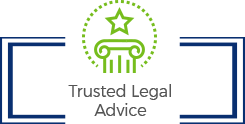When you work with The Noble Law, you gain access to a team of employment lawyers who will work to understand your situation and help you understand your legal options. Schedule a consultation with a workplace harassment lawyer in South Carolina or North Carolina today.
Our attorneys take the time to listen to your experience and clearly explain all available legal pathways forward. If you have experienced sexual assault in the workplace, schedule a consultation with our attorneys in South Carolina or North Carolina today.



What Is Considered Sexual Assault at Work?
Sexual assault in the workplace involves any non-consensual sexual act, physical contact, or coercion that occurs in a professional setting. This includes acts committed by co-workers, supervisors, clients, or anyone you interact with on the job.
Sexual assault at work can happen anywhere—in an office, at a job site, during work-related events, or even online. Men, women, and non-binary individuals of any sexual orientation can experience sexual assault, and statistics show that the vast majority of workplace sexual assaults involve male perpetrators and female victims. Regardless of gender or sexual orientation, everyone has the right to a safe workplace.
Unfortunately, the reality is that many people find themselves the subject of unwanted sexual advances or actual assault while at work. This is against the law and should not be tolerated. Everyone has the right to feel safe while on the job. At The Noble Law, we protect your rights while fighting for you to receive the justice you deserve.
What Laws Protect Employees from Sexual Misconduct?
“Title VII of the Civil Rights Act of 1964 (“Title VII”) is a federal law that permits employees to sue employers for unlawful sexual misconduct in the workplace. Title VII also protects employees from retaliation for reporting instances of sexual misconduct at work. In certain cases, the North Carolina Equal Employment Practices Act (NCEEPA) also protects employees from retaliation for objecting to sexual harassment.
A victim of workplace sexual harassment may also seek legal relief through a civil tort claim. These may include claims for assault, battery, or intentional infliction of emotional distress. Whether any of these claims can be brought against the employer in addition to the perpetrator will depend on the facts of each case.
In certain cases, criminal referrals are appropriate. As a crime, sexual assault falls under North Carolina General Statutes § 14-27.1, Rape and Other Sexual Offenses.


Examples of Sexual Assault at Work
Examples of sexual harassment at work include:
- Unwelcome advances
- Demands for sexual favors, often a quid pro quo
- Exposure to pornography at work
- Name-calling or sexual slurs
- Inappropriate touching
- Inappropriate compliments, such as remarks on breast size
Some of these behaviors, such as inappropriate touching, may fall into the category of sexual assault, which can be both a crime and civil violation.
The Difference Between Sexual Harassment and Assault Under the Law
Many victims struggle to understand their legal recourse because workplace policies can be vague about what rises to the level of sexual harassment or assault. While both are serious, they have different consequences under civil and criminal laws.
- Sexual Harassment generally involves unwelcome, often repeated behavior of a sexual nature but doesn’t necessarily involve physical touching or coercion.
- Sexual Assault, however, involves actual physical force, threats, or non-consensual sexual contact. This behavior can carry criminal penalties for perpetrators as well.
What to Do If You are a Sexual Assault Victim at Work
If you have experienced sexual assault at work, your health and safety should be your first concern. Consider the following steps:
Seek Medical Attention Immediately
Get treatment and preserve evidence through a forensic exam (rape kit) if needed.
Contact the Police
Sexual assault is a criminal offense. You have the right to report the incident to law enforcement. Even if you are uncertain about pressing charges, police can document the assault and initiate an investigation, which may support any legal claims you choose to file.
Document Everything
Record important details such as:
- Dates, times, and locations
- Any interactions before or after the assault
- All relevant emails, messages, or witness accounts
These may serve as key evidence in both criminal and civil cases
Report to HR
Notify HR or another workplace authority. Employers are legally required to address these issues and take steps to make their work environment safe.
Consult an Employment Lawyer
Contact our firm to discuss your legal options. Even without criminal charges, you may be entitled to civil compensation for damages including lost wages and emotional distress.
Your Legal Rights After Workplace Sexual Assault
If you have experienced sexual assault at work in North or South Carolina, know that you have legal rights and recourse. Under Title VII of the Civil Rights Act of 1964 (“Title VII”), your employer is legally required to provide a safe working environment free from sexual assault and harassment. Title VII also protects you from retaliation when you report sexual misconduct.
Employers have a responsibility to maintain a work environment free from harassment. If they fail to do so, they may face liability under Title VII. However, there are time limits to file a claim. Under federal law, you only have up to 180 days to file a charge with the Equal Employment Opportunity Commission (EEOC), although some states (including South Carolina, but not North Carolina) expand this deadline to 300 days because they have State-equivalent agencies to the EEOC.
In addition, North Carolina employees have three years to file a civil lawsuit for sexual assault or harassment. South Carolina follows a similar statute of limitations.


Criminal vs. Civil Law and Negligence
The perpetrator of a sexual assault faces criminal liability. During criminal proceedings, the government is responsibility for convicting the perpetrator and ensuring he or she faces appropriate punishment. Separately, the victim may also file a civil lawsuit against the defendant to recover damages, which may include lost wages, emotional distress, medical bills, litigation costs, and attorney’s fees. It is also possible to file a lawsuit against the employer for negligence in either a sexual assault or harassment case. The employer is obligated legally to take reasonable steps to prevent sexual misconduct and to investigate and protect employees once they know that an employee was subject to inappropriate sexual behavior. Failing to do so can make the employer liable.
To prove the employer was negligent, the victim must provide evidence. Such evidence may include the following:
- Lack of a safe working environment.
- Failure to respond appropriately –when an employee files a sexual harassment complaint, it is incumbent upon them to act immediately. Should no action or insufficient action occur, the employee may hold the employer liable for an unsafe working environment.
- Employer retaliation–After filing a sexual harassment or assault claim, the employer cannot retaliate against the victim. Examples of such retaliation include firing, demotion, harassment, or similar hostile actions.
- A plaintiff may prove that his or her employer was negligent in various ways. For example, the employer may not have conducted a thorough background check on the individual alleged to have committed the sexual assault or harassment. If there were warning flags indicating the person may have been a danger, the employer might have engaged in negligent hiring. Employers are also responsible for monitoring employees regularly and training them
Contact The Noble Law
If you or someone you know has been the victim of sexual assault, harassment, or discrimination in the workplace, you need the services of the sexual assault attorneys at The Noble Law. Contact us to inquire about a free, no-obligation consultation today.




